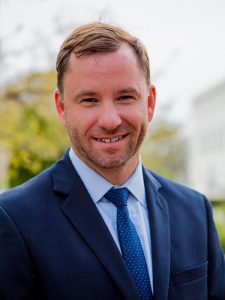Florida Gov. Ron DeSantis promised to make water quality a priority. He started well.
At his urging, the Legislature last year appropriated $625 million for clean-water projects. He also replaced every member of the South Florida Water Management District board, which when it came to protecting the Everglades, regularly sided with polluters.
One of DeSantis’ other actions, however, showed just how much work remains to protect Florida’s waters and why he can’t let up.
The governor named a task force to recommend policies for combating blue-green algae. Because outbreaks occur regularly in Lake Okeechobee, the toxin gets released to east and west coast estuaries during discharges to keep the lake level low enough that it doesn’t threaten the Herbert Hoover Dike.
The task force released its first report in October. Among other things, it calls for more storage and treatment of farm and suburban runoff before the polluted water enters Lake Okeechobee from the north. It also calls for better monitoring of septic tanks, another source of pollution.
Between the lines, the report says this: Without cutting the source of pollution, much of which comes from fertilizer-laden runoff, Florida can make progress toward cleaner water, but can’t get there.
Its recommendations highlight the decades-long deference that Tallahassee has given the farm industry.
In an interview with the Sun Sentinel Editorial Board, Everglades Foundation CEO Eric Eikenberg called the recommendations “encouraging.” He noted that DeSantis wants another $625 million in next year’s budget to improve water quality.

Of that, $300 million would go toward Everglades restoration and a reservoir that would help keep the coasts from getting pounded by discharges from Lake Okeechobee. Another $50 million would be for cleaning up Florida’s freshwater springs.
Eikenberg noted, however, that only state legislation can impose tougher standards, monitoring and enforcement on water pollution at its source. Indeed, the clean water campaign isn’t just about money.
Example: Last month, in an administrative hearing, several environmental groups and individuals challenged what they called the Florida Department of Environmental Protection’s “ineffective” Basin Management Action Plans (BMAPs), which are supposed to protect 15 of the state’s most beautiful and sensitive springs.
Bob Palmer is on the board of the Florida Springs Council. In a news release from the group, Palmer said the “DEP misinterpreted the law, science and data to make its job easier, with apparently no concern over whether the plans would actually work.” The plans “fail to meet water quality goals.”
The key legislation in the session that begins Jan. 14 is Senate Bill 712, called the Clean Waterways Act. It contains recommendations from the task force. It addresses those action plans and methods farmers use to contain runoff before it contributes to pollution downstream.
The bill runs to nearly 100 pages. The analysis alone is 28 pages. The language is detailed and wonky, covering every source of water pollution: farms, faulty sewage and storm water systems – we’re looking at you, Fort Lauderdale – biosolids (byproducts of sewage treatment) and septic tanks.
An updated version of SB 712 passed the Community Affairs Committee unanimously on Dec. 9. There is no similarly comprehensive water-quality bill in the House, which likely means legislative leaders decided the Senate would take the lead on this issue.
History does not offer grounds for optimism. As Eikenberg noted, “It’s always been hard to get the legislative nod” on environmental enforcement. A comprehensive bill in the last session got watered down. The Legislature passed a springs protection bill in 2012. If it had been meaningful, there wouldn’t have been a lawsuit.
Robert Knight is executive director of the Florida Springs Institute. He was an expert witness in the lawsuit. The springs remain threatened, Knight told us, “because the state hasn’t made the farmers do anything significant.”
The same was true of Everglades farmers until a quarter-century ago. After a federal lawsuit accused the state of allowing pollution that harmed Everglades National Park, then-Gov. Lawton Chiles and the Legislature created the Everglades Forever Act.
Under the law, farmers and the public pay to store and cleanse farm runoff. That program might have made the water clean enough by now to restore the Everglades, but Tallahassee twice has caved to farm lobbying and pushed back the deadline for full compliance.
So, DeSantis must ensure the Legislature finally makes Florida’s waterways a priority. Though individual legislators have championed water quality, Tallahassee’s institutional bias has been with the polluters. The state has tried to set policy around the agriculture industry.
The governor got a down payment on water quality during his first session. Budgets, though, can fluctuate. Use SB 712 to give DeSantis real power on water quality.
The Orlando Sentinel and Sun Sentinel editorial boards have teamed up to write a series of weekly editorials previewing the 2020 Florida legislative session, which begins Jan. 14. This is the second of four planned editorials.
Editorials are the opinion of the Sun Sentinel Editorial Board and written by one of its members or a designee. The Editorial Board consists of Editorial Page Editor Rosemary O’Hara, Sergio Bustos, Steve Bousquet and Editor-in-Chief Julie Anderson.
“The Invading Sea” is the opinion arm of the Florida Climate Reporting Network, a collaborative of news organizations across the state focusing on the threats posed by the warming climate.



